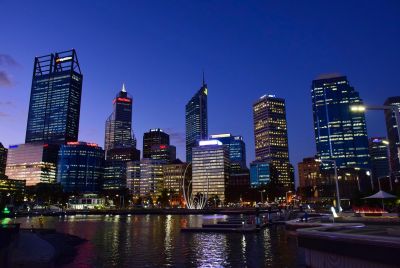World’s Poorest To Suffer Most From Climate Change: World Bank
The world should start taking action to combat the dangerous rise in temperatures, said the president of the World Bank, warning that millions of people around the world are likely to be pushed back into poverty because climate change is undermining economic development in poor countries.
In its new report on climate change, the Washington-based organisation warned that food shortages will be among the first consequences within just two decades, along with damage to cities from fiercer storms and migration as people try to escape the effects of climate change.
The flooding of 40 percent of the Thai capital Bangkok was just one of dozens of negative effects the World Bank warned would happen if the world grew warmer by 2 degrees Celsius, widely accepted as a threshold to dangerous changes such as more floods, heat waves and rising sea levels.
Related: Global Warming Slower Than Predicted but Outlook Critical
In sub-Saharan Africa, increasing droughts and excessive heat are likely to mean that within about 20 years the staple crop maize will no longer thrive in about 40 percent of current farmland. In other parts of the region rising temperatures will kill or degrade swaths of the savannah used to graze livestock, according to the World Bank.
The report Turn Down the Heat: Climate Extremes, Regional Impacts, and the Case for Resilience focused especially on the effect of higher temperatures on developing countries in sub-Saharan Africa and South and Southeast Asia, where most of the world's poorest people live.
Speaking at a conference on Wednesday, World Bank President Kim Jim-Yong called the lack of an international deal a "lame excuse" not to tackle climate change, adding that as extreme weather events continue, public opinion about climate change should also start to change.
"The level of seriousness at the top in the United States couldn't be higher. As extreme weather events occur (such as) in the mid-west and Hurricane Sandy etc, other legislators will come around," Kim said, noting that the impact of climate change has the ability to fundamentally reshape the world economy and dramatically reverse advances in human development.
Related: New York Unveils $20bn Plan Create Storm-Proof City
However, Kim said that the political will to act on climate change, particularly by major economies such as China, is rapidly building even as UN-led climate talks falter.
China, the world's largest carbon emitter, has been investing more in solar and wind energy than any other country and this week launched its pilot emissions trading scheme in the city of Shenzhen, marking a milestone in the country's climate policy.
"If we get China, the U.S. and the EU to agree on a price for CO2 we will have a market mechanism to fight climate change. I hope a practical solution will happen before 2020," Kim said, adding that China is setting "really, really aggressive goals" on curbing its carbon emissions.
Related: China Leading World In Fight Against Climate Change: Study
Related: China Launches Pilot Carbon Trading Scheme
"At the World Bank Group, we are concerned that unless the world takes bold action now, a disastrously warming planet threatens to put prosperity out of reach of millions and roll back decades of development," he said. "In response we are stepping up our mitigation, adaptation, and disaster risk management work, and will increasingly look at all our business through a 'climate lens.'"
Rachel Kyte, vice president of the World Bank, said it had doubled its aid for adaptation from $2.3 billion in 2011 to $4.6 billion last year, and called for a further doubling. She said the bank was working to tie its disaster aid and climate change adaptation funding closer together.
Aid from the bank to help poor countries cut their greenhouse gas emissions and pursue environmentally sustainable economic development stands at about $7 billion a year, and is backed by about $20 billion from regional development banks and other partners.
Economy Watch



















